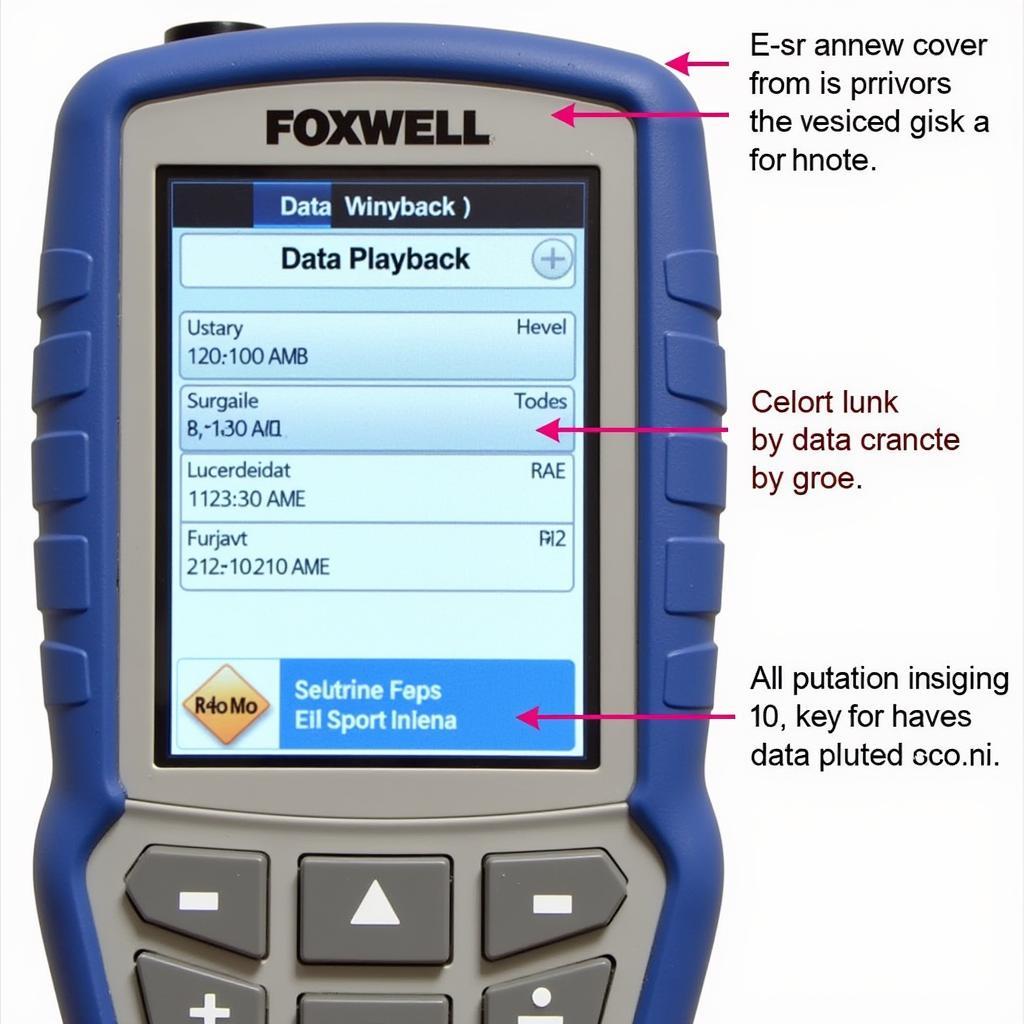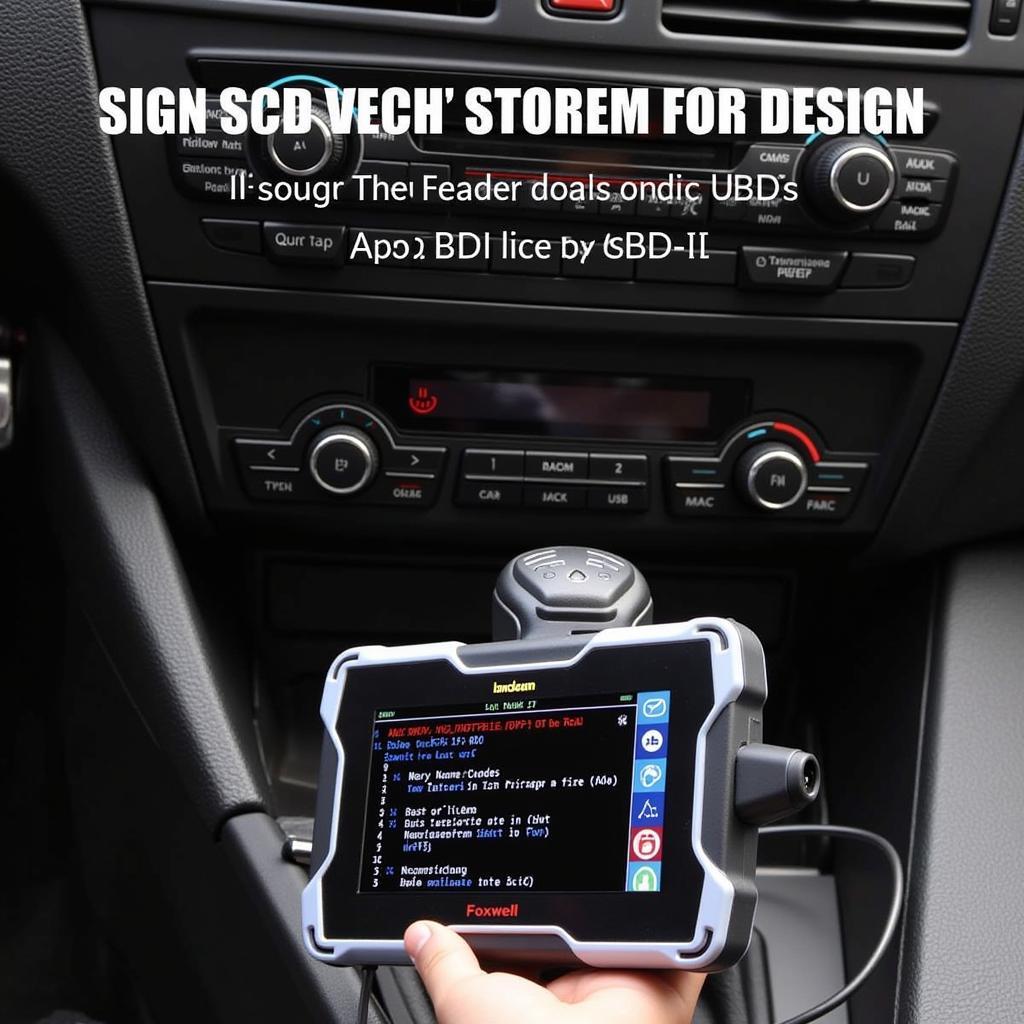Christian Foxwell, a prominent figure in the automotive electrical engineering field, emphasizes the growing reliance on sophisticated software and diagnostic tools in modern vehicle repair. As vehicles become increasingly integrated with complex electrical systems, traditional troubleshooting methods often fall short, demanding specialized knowledge and equipment.
The Evolution of Automotive Electrical Systems
Gone are the days of simple wiring diagrams and basic multimeters. Today’s vehicles are essentially computers on wheels, utilizing intricate networks of sensors, actuators, and electronic control units (ECUs) to manage various functions, from engine performance to safety features.
This complexity presents a challenge for car owners and even some mechanics accustomed to older, mechanically-driven vehicles. Diagnosing and repairing issues within these intricate systems requires a deep understanding of electrical principles, software logic, and the ability to interpret data from specialized diagnostic tools.
The Role of Diagnostic Software and Equipment
Christian Foxwell stresses the critical role of advanced diagnostic software and equipment in effectively troubleshooting modern automotive electrical problems. These tools provide a window into the vehicle’s electronic brain, enabling technicians to:
- Read and clear fault codes: Diagnostic tools can access the vehicle’s onboard diagnostics system (OBD), retrieving stored fault codes that pinpoint potential problem areas.
- Monitor live data streams: Observing real-time data from various sensors allows technicians to analyze system performance and identify anomalies.
- Perform active tests: These tools can command specific components to activate, aiding in isolating faulty parts.
- Reprogram and update software: As manufacturers release software updates to address bugs or enhance performance, technicians can use diagnostic equipment to reprogram ECUs.
Investing in high-quality diagnostic software and equipment is no longer optional for those serious about automotive repair. It’s the key to unlocking the complexities of modern vehicles and providing efficient, accurate repairs.
Choosing the Right Diagnostic Tools: Expert Advice
Christian Foxwell advises technicians and garage owners to carefully consider their specific needs when selecting diagnostic tools. Factors to consider include:
- Vehicle coverage: Ensure the tool supports the makes and models you commonly service.
- Software features: Evaluate the available functions, such as live data streaming, active tests, and ECU programming capabilities.
- User interface: A user-friendly interface can significantly improve efficiency and ease of use.
- Technical support and updates: Reliable technical support and regular software updates are crucial for staying current with evolving vehicle technologies.
The Importance of Continuous Learning
In the ever-evolving landscape of automotive technology, continuous learning is non-negotiable. Christian Foxwell emphasizes the need for ongoing training and professional development to stay ahead of the curve.
Resources like online courses, industry publications, and workshops provide valuable insights into the latest advancements in automotive electrical systems, diagnostic techniques, and repair strategies. By investing in their knowledge and skills, technicians can confidently tackle the challenges presented by increasingly sophisticated vehicles.
Conclusion
Navigating the intricacies of modern automotive electrical systems demands a comprehensive understanding of both the electrical and software aspects. Following Christian Foxwell’s insights, focusing on advanced diagnostic tools and embracing continuous learning are essential for successfully diagnosing and repairing today’s technology-driven vehicles.
For expert guidance and access to top-tier automotive diagnostic equipment, contact ScanToolUS at +1 (641) 206-8880 or visit our office at 1615 S Laramie Ave, Cicero, IL 60804, USA.
FAQs
- What is an ECU, and why is it important?
An ECU, or Electronic Control Unit, acts as the vehicle’s brain, managing various systems. Its proper functioning is crucial for overall vehicle performance. - Can I diagnose car problems myself using a code reader?
Basic code readers can provide some insight, but comprehensive diagnosis often requires more advanced tools and expertise. - How often do I need to update my diagnostic software?
Regular updates, often released by manufacturers, are vital for staying compatible with the latest vehicle technologies. - What are the essential features to look for in automotive diagnostic software?
Key features include vehicle coverage, live data streaming, active test capabilities, and ECU programming functionality. - What are some reputable sources for automotive electrical training?
Online courses, industry publications like Motor Age and Automotive News, and workshops offered by organizations like the National Institute for Automotive Service Excellence (ASE) provide valuable training opportunities.


